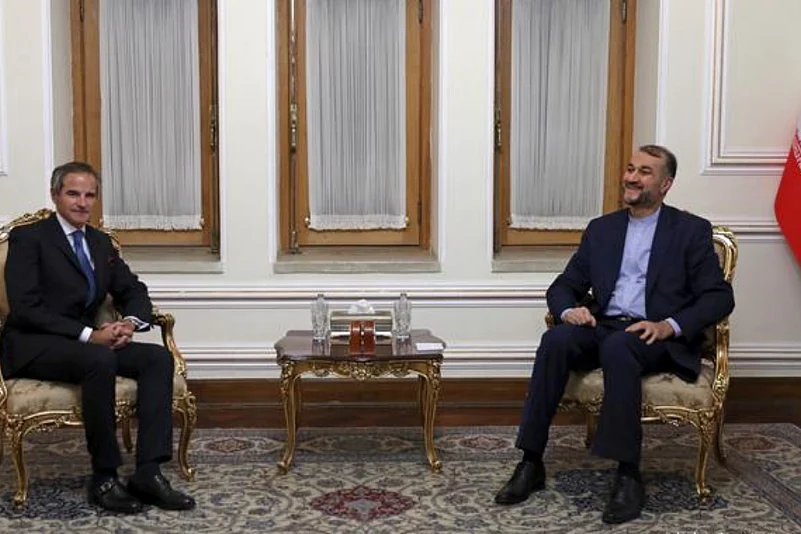Rafael Grossi, director-general of the International Atomic Energy Agency (IAEA), said Wednesday that the negotiations held yesterday with Iranian officials were "intense" but that the two sides "could not agree" on several points of contention between the agency and Tehran.
"Despite my best efforts, these extensive negotiations and deliberations to address Iran's outstanding safeguard issues, proved inconclusive," Grossi told the quarterly meeting of the IAEA board of governors.
Iran's Atomic Energy Organisation spokesman Behrouz Kamalvandi said talks between the two sides had agreed, however, to continue consultations.
"The talks between the agency's chief Rafael Grossi and Iranian officials in Tehran took place in a constructive atmosphere and the two sides reached a general agreement on how to pursue issues of interest," Kamalvandi added.
Advertisement
Under the 2015 Iran nuclear deal, Tehran agreed to limit uranium enrichment and allow for wider inspections of nuclear facilities in exchange for sanctions relief.
However, after the United States walked away from the agreement and reapplied sanctions in 2018, Iran again began enriching nuclear fuel and limiting access to sites.
This week's talks came ahead of new negotiations in Vienna scheduled for Monday between Iran and world powers on reviving the tattered deal.
What is the IAEA asking for?
Constraints put on UN inspectors accessing several nuclear sites in Iran, and the treatment of IAEA staff in the country, were at the center of negotiations.
Advertisement
Earlier this year, IAEA inspectors found uranium particles at two previously undeclared sites that Iran had long prevented them from entering.
The UN nuclear watchdog has also asked for damaged surveillance cameras to be reinstalled at a centrifuge parts production site near the northern city of Karaj.
Inspectors are also seeking access to real-time data from automated measuring devices, which monitor Iran's stockpile of enriched uranium.
Last week, Grossi complained about restrictions on the work of IAEA inspectors, saying they've had to endure "excessively intrusive body searches" by security forces in Iran.
US watches for Iran's next move
US special envoy Rob Malley told National Public Radio warned that Washington would not "sit idly" on Iran if it drags its feet on returning to a nuclear accord.
"If they start getting too close, too close for comfort, then,of course, we will not be prepared to sit idly," US negotiator Rob Malley told the National Public Radio in excerpts released Tuesday.
"If it doesn't want to get back into the deal, if it continues to do what it appears to be doing now, which is to drag its feet at the nuclear diplomatic table and accelerate its pace when it comes to its nuclear program, if that's the path it chooses, we'll have to respond accordingly," Malley said.



















